
Evolutionary Physiology
The research interest of our group is in trying to understand the ways in which animals are physiologically organized depending on the environment in which they live. We focus on three physiological systems: i) reproduction, ii) endocrine control mechanisms, and iii) the circadian system. To study physiological adaptations, we compare bird populations across latitudes, both intraspecifically (using great tit, Parus major, populations across Europe) and interspecifically (temperate versus tropical birds). The research integrates physiology, ecology and evolution and is aimed at a functional understanding of short- and long-term animal-environment interactions.
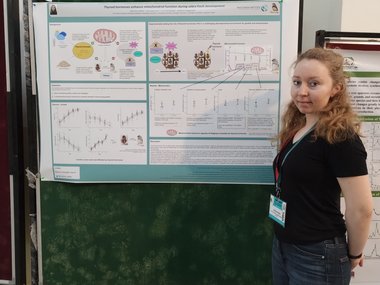
Poster prize for Marlene Oefele
Congratulations to PhD student Marlene Oefele for winning the poster prize at the International Avian Endocrinology Symposium!
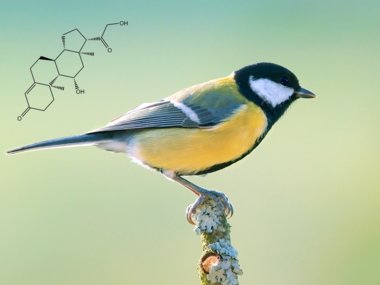
Glucocorticoids and reproduction
Glucocorticoids are thought to play a key role in regulating the metabolically demanding aspects of reproduction. Yet, evidence supporting this idea is mixed. Our study shows that baseline glucocorticoids do not influence fitness independently, but in association with enzymatic antioxidants.
Image: Luc Viatour (Belgium) CC BY-SA 2.0
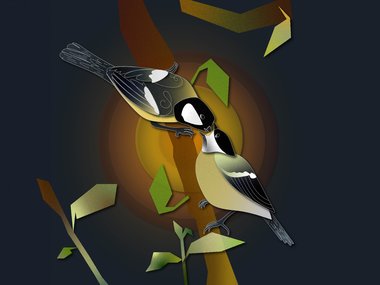
Innovative visualization of our data on great tits
Our study on the changes in stress hormones in great tits due to temperature fluctuations was published in 2022. The data generated in this project has now been visualized as part of the "Visual Analytics" course at Düsseldorf University of Applied Sciences under the supervision of Professor Kay Schröder. Student Evi Hoang took on the challenge of visualizing the data in an innovative way to make it more accessible and interactive. Her website creates a new approach to our paper and its data, and can help to make the research more appealing to people who have not had the courage to approach scientific topics before.
(Illustration: Evi Hoang / Düsseldorf University of Applied Sciences)
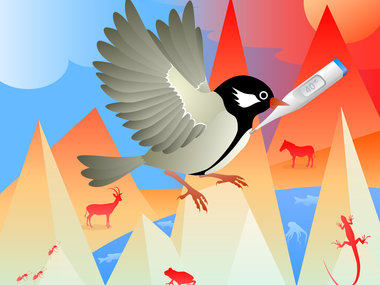
New Review of the research group about hormonal flexibility
In a new review, Michael Hau & colleagues explore the role of hormonal flexibility as a mechanism that allows animals to cope with changing temperatures. They discuss this over long and short time periods and different hierarchical levels (like populations, species or individuals). Art by Julia Kuhl @mulesome

Do hormone fluctuations increase survival probabilities?
Great tits reveal how birds cope with changes in environmental temperatures

Congratulations to Dr. Eve Udino, who received a 2-year Alexander-von-Humboldt-postdoc fellowship to work in our group
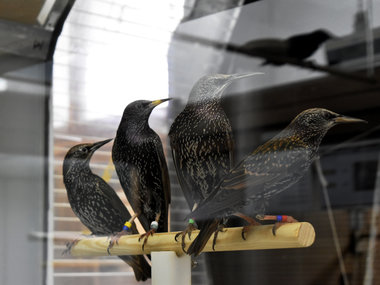
Berries regulate metabolic stress in migratory birds
Migratory starlings are avian athletes that fly long distances in conditions that can push them very close to their physiological limits. Glucocorticoids are hormones that increase during endurance exercise to provide ready-to-use fuel to satisfy the high energy demands; however, prolonged exposure to high glucocorticoids is detrimental. A new study of researchers from Seewiesen, the US and Poland with European starlings in the wind tunnel show that dietary anthocyanins – antioxidants present in colored berries selected by birds especially during migration –control excessive secretion of glucocorticoids when birds are flying for long durations. This supports the novel idea that dietary anthocyanins have important metabolic functions that also attenuate the endocrine stress response triggered by endurance flight.
Stefania Casagrande, Kristen J. DeMoranville, Lisa Trost, Barbara Pierce, Amadeusz Bryla, Maciej Dzialo, Edyta T. Sadowska, Ulf Bauchinger, and Scott R. McWilliams, "Dietary antioxidants attenuate the endocrine stress response during long-duration flight of a migratory bird," Proceedings of the Royal Society B: Biological Sciences 287 (1929), 20200744 (2020).
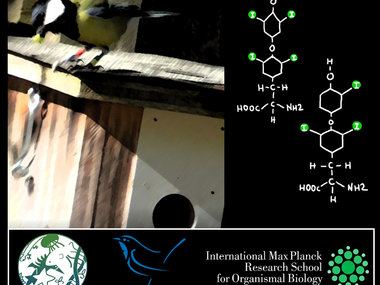
Do thyroid hormones help birds to adjust to changes in environmental conditions?
Thyroid hormones are essential for maintaining homeostasis, as well as adjusting metabolic rate and thermoregulation in vertebrates exposed to variations in environmental conditions. This project will test the hypothesis that average concentrations of thyroid hormones as well as their plastic up- or downregulation during energetically challenging situations determines individual fitness.
Kasja Malkoc received funding by the IMPRS (International Max Planck Research School), DO-G (Deutsche Ornithologen-Gesellschaft) and SICB (Society for Integrative and Comparative Biology), to study thyroid hormones in great tits (Parus major) in laboratory and field conditions.’’
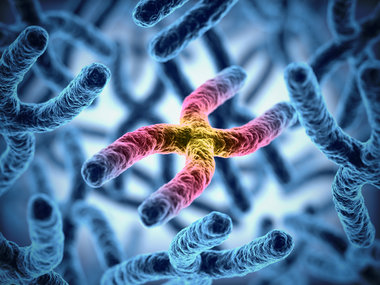
Telomere attrition: Metabolic regulation and signaling function?
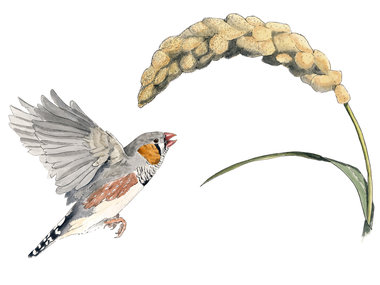
Stress hormones increase during high energy expenditure
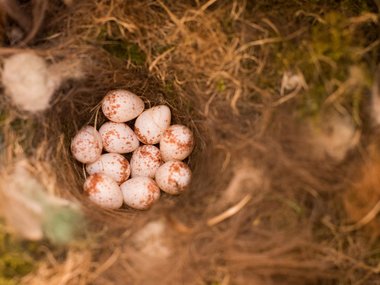
No effect of egg hormones on maternal or offspring fitness
In egg-laying species, mothers deposit hormones like androgen, glucocorticoid and thyroid in their eggs. It is widely assumed that they adjust the concentration in response to environmental and social cues to optimize their own fitness and/or that of their offspring.
In a comprehensive meta-study of 19 different bird species, it has now been shown that these assumptions are statistically unfounded. There is no discernible effect of androgens, glucocorticoids and thyroid hormones on either maternal or offspring fitness. This challenges previous assumptions and is an important theoretical contribution to the field.
Mentesana L, Hau M, D'Amelio PB, Adreani NM, Sánchez-Tójar A. 2025. Do Egg Hormones Have Fitness Consequences in Wild Birds? A Systematic Review and Meta-Analysis. Ecology Letters 28: e70100.
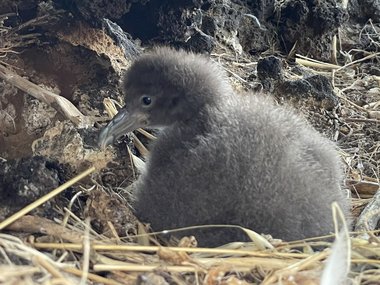
Is global warming shrinking birds?
A new study reveals that shearwaters raised in warmer temperatures develop smaller bodies and beaks. The authors of the study, Stefania Casagrande and Giacomo Dell Omo link this to cellular stress, reduced metabolic energy and lower growth factors.
Stefania Casagrande & Giacomo Dell'Omo (2025). Linking warmer nest temperatures to reduced body size in seabird nestlings: Possible mitochondrial bioenergetic and proteomic mechanisms. J Exp Biol2025; jeb.249880.